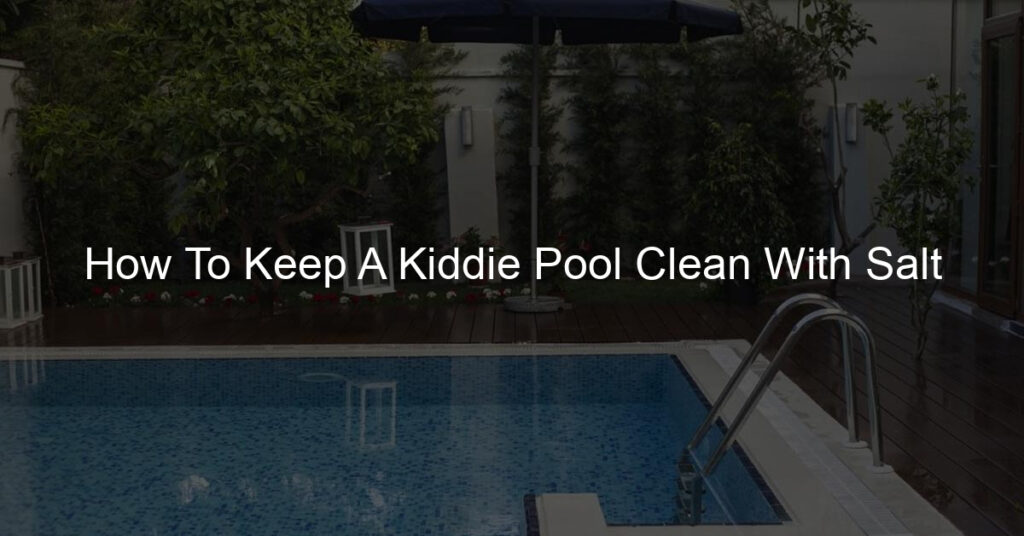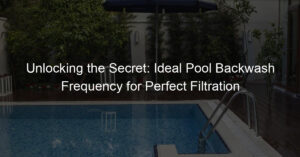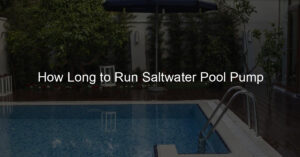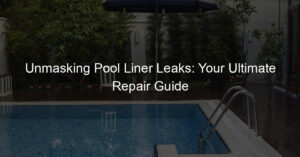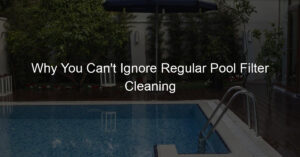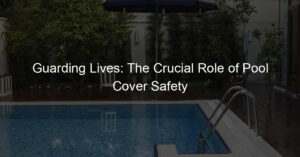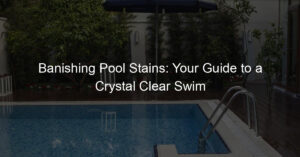If you’ve been wondering about how to keep your kiddie pool clean and safe, you’ve landed in the right place. This comprehensive guide is dedicated to teaching you about the benefits and process of using salt in your kiddie pool, an eco-friendly and effective approach to pool maintenance. From understanding the basics to troubleshooting issues and expert advice, you’ll walk away equipped with the knowledge to make the best choices for your kiddie pool’s cleanliness and longevity.
Understanding the Basics: Salt Systems for Kiddie Pools
The saltwater system for kiddie pools operates on the principle of electrolysis. This process involves dissolving a suitable quantity of salt in the water and using a saltwater generator to convert the salt into chlorine, a natural sanitizer. This transformation helps to keep the water in the pool clean and safe for the little ones. The basics also involve understanding the right type of salt to use, how to add it, and maintaining the correct balance.
Benefits of Using Salt to Clean Your Kiddie Pool
Saltwater systems for kiddie pools come with multiple benefits. First, they are less harsh on the skin and eyes, reducing the chances of irritation compared to traditional chlorine pools. Second, they require less frequent maintenance as the salt cell continuously produces chlorine when the pump is running. Lastly, the consistent production of natural chlorine helps eliminate algae growth and maintains water clarity.
Choosing the Right Type of Salt for Kiddie Pool Maintenance
When it comes to choosing salt for your kiddie pool, it’s essential to select a pure, high-quality product. Non-iodized, solar or evaporated salt with a purity of 99.8% or higher is ideal. Be sure to avoid using rock salt, salt with anti-caking agents, or iodized salt as these can cause issues with the electrolysis process and potentially damage the kiddie pool or cause discomfort for swimmers.
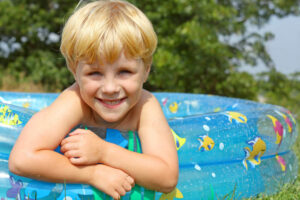
Step-by-Step Guide: How to Add Salt to Your Kiddie Pool
Adding salt to your kiddie pool is a relatively straightforward process. Begin by testing the pool water to establish the current salinity level. Next, calculate how much salt is needed using the manufacturer’s guidelines, usually provided with the saltwater generator. Then, evenly distribute the salt throughout the pool, stirring it to aid in dissolution. It’s crucial to add the salt gradually and give it enough time to fully dissolve before retesting and adjusting as necessary.
Maintaining Optimal Salt Levels in Kiddie Pools
Keeping the salt levels balanced in your kiddie pool is crucial for effective sanitation. For most saltwater systems, the recommended salt level is between 2700-3400 parts per million (ppm). Test the water regularly using a saltwater test kit to ensure the levels stay within this range. If the salt levels drop below this range, you may need to add more. If it goes above, you may have to dilute the pool water.
Common Mistakes to Avoid When Using Salt in Kiddie Pools
Despite the simplicity of using a saltwater system, some common mistakes can lead to issues with pool sanitation or damage to the pool itself. Over-salting the pool is a common mistake that can lead to salt buildup and damage to the pool structure and equipment. Similarly, failing to distribute and dissolve the salt evenly can cause uneven sanitation levels. Lastly, not checking the pool’s salt levels frequently enough can lead to imbalances that interfere with proper sanitation.
The Role of Salt in Kiddie Pool Sanitation
Salt plays a critical role in the sanitation of kiddie pools by acting as the primary source of chlorine. The saltwater generator uses electricity to convert salt into chlorine, a natural sanitizer. This chlorine then helps to kill bacteria, algae, and other harmful substances in the water, keeping it clean and safe for use.
Comparing Salt vs. Chlorine for Kiddie Pool Cleanliness
When it comes to kiddie pool cleanliness, both salt and chlorine systems have their pros and cons. Traditional chlorine pools may be cheaper upfront, but they require more regular maintenance and can cause skin and eye irritation. On the other hand, saltwater systems can be more cost-effective in the long run, require less maintenance, and are gentler on the skin and eyes. However, they require a higher initial investment and can lead to salt buildup if not properly managed.
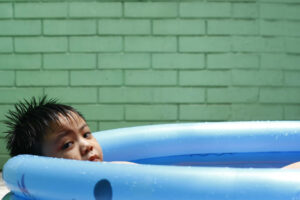
Salt and Kiddie Pool are: Health and Safety Concerns
While saltwater pools are generally safer and more comfortable for swimmers, there are a few health and safety concerns to be aware of. High salt levels can potentially lead to salt buildup and damage to the pool structure and equipment. Moreover, if the water becomes overly saline, it may cause minor skin and eye irritation. Always ensure to balance the salt levels and consult with a pool professional if any issues arise.
Troubleshooting Salt-Based Kiddie Pool Cleaning Issues
If you’re experiencing issues with your salt-based kiddie pool, there are several troubleshooting steps you can take. If the water appears cloudy or green, this could indicate low chlorine levels, requiring additional salt or adjusting the saltwater generator. If there’s salt buildup on the pool’s surfaces, this could be due to oversalting and will necessitate dilution or professional cleaning.
Tips for Effective Salt-Based Kiddie Pool Cleaning Routine
An effective cleaning routine is key to maintaining a healthy saltwater kiddie pool. Regularly skim the pool for debris, maintain optimal salt and chlorine levels, and run the pool pump for the appropriate duration each day. Additionally, conduct a thorough cleaning of the pool surfaces and saltwater generator cell as per manufacturer guidelines.
Converting a Kiddie Pool to a Salt Water System: Is It Worth It?
Whether converting a kiddie pool to a saltwater system is worth it depends on several factors. The conversion cost, ongoing maintenance, the comfort of the swimmers, and personal preference all play a role in this decision. Saltwater pools require a higher initial investment but offer savings in the long run with reduced chemical costs and less frequent maintenance.
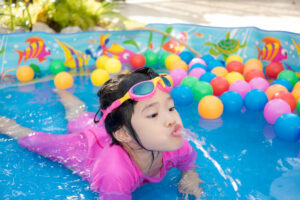
Salt-Based Kiddie Pool Maintenance: Seasonal Considerations
Seasonal changes can affect your kiddie pool’s saltwater system. In warmer weather, pools may require more salt due to increased evaporation and use. Conversely, in cooler months, the salt requirement may decrease. Regularly testing and adjusting salt levels to match the season can help maintain optimal pool conditions.
Best Practices for Storing Salt for Kiddie Pool Cleaning
When storing salt for kiddie pool cleaning, it’s best to keep it in a cool, dry place. Salt can absorb moisture from the air and clump together, making it harder to use. Keep the salt in its original packaging or a sealed container to prevent it from getting wet or absorbing moisture.
Case Study: Transforming Kiddie Pool Care with Salt Water Systems
Consider the case of a typical family with young children and a kiddie pool. Initially, they struggled with maintaining the cleanliness of the pool using traditional chlorine, citing issues such as regular algae blooms and skin irritations. After converting to a saltwater system, they reported significantly fewer issues, easier maintenance, and happier, more comfortable swimmers.
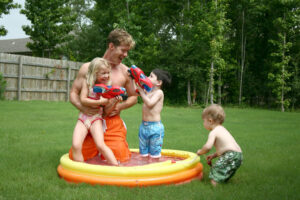
Eco-Friendly Benefits of Saltwater Kiddie Pools
Saltwater kiddie pools are more eco-friendly compared to traditional chlorine pools. They reduce the need for harmful chemicals and their associated packaging waste. Additionally, since salt cells continuously generate natural chlorine, there’s less need for pool water replacement, conserving water.
Expert Advice: Professionals Weigh in on Salt-Based Kiddie Pool Cleaning
Professional pool service providers recommend salt-based cleaning for kiddie pools due to its numerous benefits. From the cost-saving aspect over time to the health and comfort of the little swimmers, the advantages of saltwater pools outweigh the initial investment. Experts also stress the importance of regular water testing and maintaining proper salt levels to ensure optimal sanitation.
Review: Best Salt Brands for Keeping a Kiddie Pool Clean
There are several trusted salt brands suitable for kiddie pool maintenance. These include Morton Pool Salt, Clorox Pool Salt, and Diamond Crystal Sun Gems. All these brands offer high-quality, non-iodized, and additive-free salt designed for saltwater pool systems.
How Weather Affects Salt-Based Kiddie Pool Maintenance
Weather can significantly affect salt-based kiddie pool maintenance. Hot, sunny weather can cause faster evaporation, reducing water and salt levels in the pool. Conversely, heavy rain can dilute the pool water, reducing salt concentration. Thus, regular testing and adjustment are crucial to maintain optimal pool conditions.
| Weather Conditions | Effect on Pool | Solution |
|---|---|---|
| Hot, sunny weather | Faster evaporation, lower water and salt levels | Add more water and salt |
| Heavy rain | Dilution of pool water, reduced salt concentration | Drain some water and add salt |
| Cold weather | Reduced evaporation, potential salt buildup | Monitor salt levels, dilute if necessary |
| Windy weather | Increased debris in pool, potential blockage of salt cell | Regular skimming, cleaning of salt cell |
Tips for Educating Kids on Saltwater Kiddie Pool Care and Safety
It’s important to educate kids about pool care and safety. Explain the role of salt in keeping the pool clean, why they should not drink the pool water, and the importance of showering before and after swimming. Teaching children these simple principles can help them understand the value of maintaining a clean and safe swimming environment.
In conclusion, maintaining a clean and safe kiddie pool using salt is an effective, cost-efficient, and eco-friendly method. While it requires an initial investment, the long-term benefits and ease of maintenance make it a worthwhile option for many families. As with any pool system, regular testing and adjustment are crucial to ensure optimal sanitation and the safety of the swimmers.
Peeling Back the Layers: Uncovered Aspects of Saltwater Kiddie Pool Maintenance
The Impact of Pool Size on Salt Requirements
The size of your kiddie pool directly influences how much salt you’ll need. Larger pools require more salt, while smaller ones need less. Always refer to the manufacturer’s guidelines to determine the correct amount of salt based on your pool’s capacity.
Selecting the Right Saltwater Generator for Your Kiddie Pool
Not all saltwater generators are the same. Factors such as pool size, available features, ease of use, and cost all play a role in determining the best option for your kiddie pool. Research and compare several models before making your decision.
Emergency Procedures: Addressing Salt Shortages or Overages
Sometimes, despite our best efforts, things can go awry. Knowing how to address salt shortages or overages promptly can prevent damage to your pool and ensure the water remains safe for swimming. This involves understanding how to properly dilute or supplement your pool’s salt levels.
The Lifecycle of a Saltwater Kiddie Pool: When to Replace Your Salt Cell
Salt cells, the component of the saltwater generator that converts salt into chlorine, have a finite lifespan. Knowing when to replace your salt cell is crucial to maintaining the effectiveness of your saltwater system. Signs of a failing salt cell include low chlorine levels, salt cell warning lights, or visible signs of wear and tear.
The Future of Kiddie Pool Maintenance: Innovations in Saltwater Systems
As technology evolves, so too do saltwater systems. Innovations such as self-cleaning salt cells, digital display panels, and adjustable chlorine output levels all make maintaining a saltwater kiddie pool easier and more efficient. Staying abreast of these innovations can help you make the most of your saltwater system.

